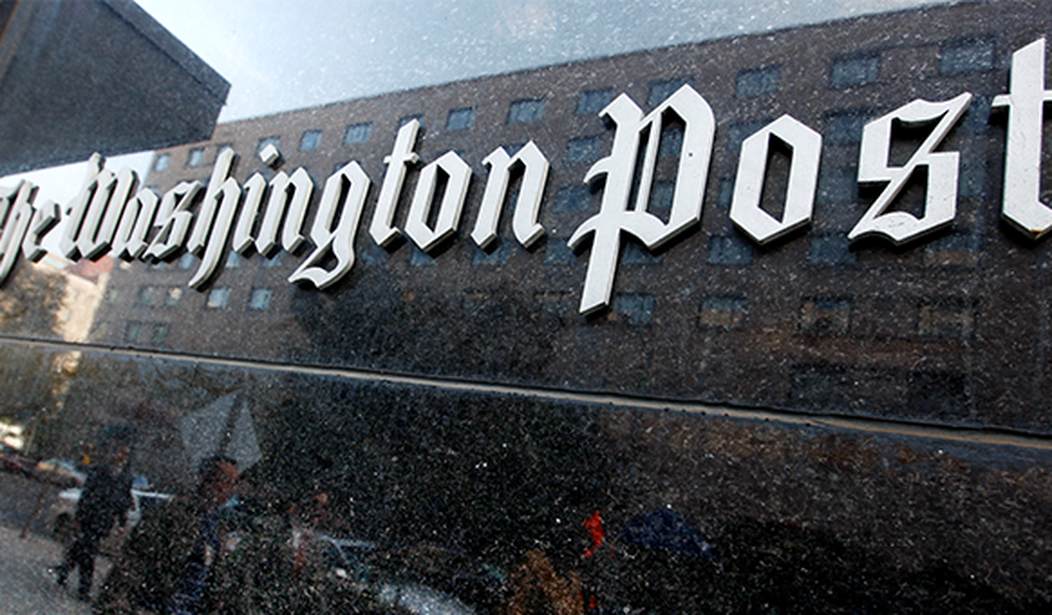As you may have heard, the Washington Post is in a hole financially and it has been for some time. That's according to publisher Will Lewis:
In a presentation to employees on Wednesday morning, Post publisher Will Lewis painted a stark picture of The Post’s finances, revealing that the publication has lost $77 million over the last year and has been bleeding digital readers for several years. “To speak candidly: We are in a hole, and we have been for some time,” he said.
And just last week the Post reported on Jeff Bezos's attempt to reshuffle things at the paper in a way that might produce better results.
What Bezos wants from and for The Post has remained the compelling question through a week of internal turmoil, during which his handpicked new publisher and CEO, William Lewis, abruptly replaced the newspaper’s first female executive editor and announced a reorganization of the newsroom — the exact plans for which remain unclear — in a bid to boost earnings...
Both Lewis and Robert Winnett, the British editor he has tapped to take over the traditional news division this fall, are veterans of the Telegraph, a London newspaper where they collaborated on a blockbuster investigation of government corruption that was lauded but also criticized by some as “checkbook journalism” because of the six-figure fee paid to a key source — a tactic more common in the United Kingdom and generally unaccepted in U.S. newsrooms.
“The big question is, are he and the editor that he’s bringing in, will they understand that they should now change — that they need to abide by American journalism standards?” said Leonard Downie, a former Post executive editor. “That’s my concern.”
Robert Winnett, the incoming editor, got a blast of American journalism late Sunday night in the form of a lengthy investigative report critical of his previous work. That story was published by the Washington Post. The Post even tagged itself in the headline.
The backyard goodbye party for Sally Buzbee, the recently departed executive editor of The Washington Post, was beginning to break up on Sunday evening when the newspaper published a critical investigation into her permanent successor.
The headline: “Incoming Post editor tied to self-described ‘thief’ who claimed role in his reporting.”
The article focused on Robert Winnett, the British journalist poised to take over The Post’s newsroom in November, and revealed his links to a private eye who used unethical media practices to land big exclusives. It noted that Mr. Winnett had declined to comment to The Post’s reporters — the same ones he will be managing in a few months.
The full story is here and it connects Winnett to a guy named John Ford who allegedly did a lot of dubious things to generate scoops.
That journalist, according to draft book chapters Ford later wrote recounting his ordeal, was Robert Winnett, a Sunday Times veteran who is set to become editor of The Washington Post later this year...
In one passage, Ford describes working with Winnett on an array of stories about consumer and business affairs. The collaboration, in his account, was part of a broader arrangement with the Sunday Times in which Ford delivered confidential details about Britain’s rich and powerful by using dishonest means, including changing their bank passwords and adopting false personas in calls to government agencies. A Sunday Times editor later acknowledged some of these practices but said they were deployed to serve the public interest.
That caveat at the end is critical because there's a carve out in the law that makes such behavior legal if done to serve the public interest.
At The Post and other major American news organizations, the use of deceptive tactics in pursuit of news stories violates core ethics policies. In Britain, “blagging” — using misrepresentation to dupe others into revealing confidential information — has been a known feature of a certain brand of tabloid journalism, especially before a public reckoning over press ethics began in 2011.
So the question is whether the stories Winnett got from Ford all met that standard. But apart from that question, it seems as if the Post's newsroom is campaigning against their newly announced editor. Will this work? We'll have to wait and see but in the meantime, former President Trump didn't miss the opportunity to slag the Post.
“The Washington Post is absolutely blowing up with Fake Stories! They ought to clean up their act - Start writing the TRUTH, and maybe they’d get some of their Readers back,” Trump wrote. “The Washington Post is on its last leg, there’s no reason for them anymore.”...
“You would think Bezos, who is losing more than $100 Million a year on that ‘RAG,’ would want to at least see REAL Journalism, not Fake Stories that do nothing but hurt and demean our Country,” Trump wrote. Last year, The New York Times reported that The Washington Post was on track to lose about $100 million in 2023.
What a strange story. The Post clearly needs to make significant changes. Whether or not that happens with Winnett as editor is really beside the point.









Join the conversation as a VIP Member